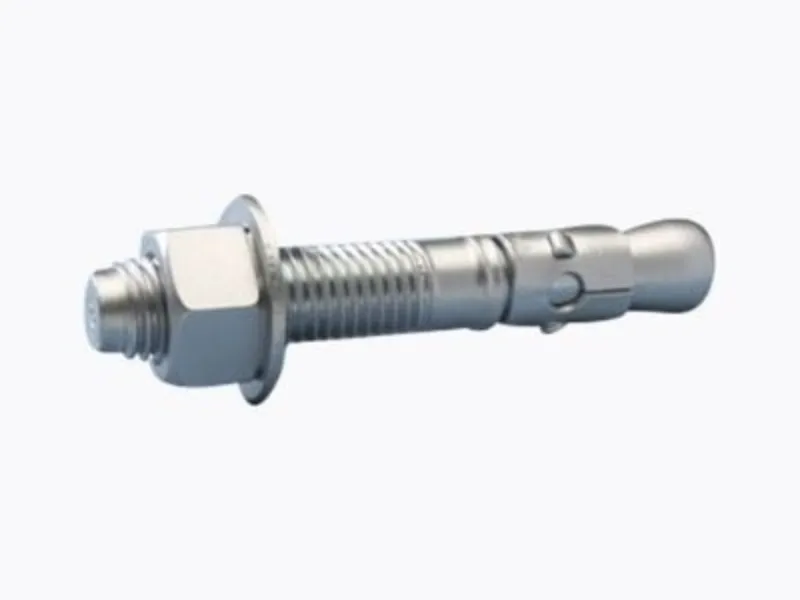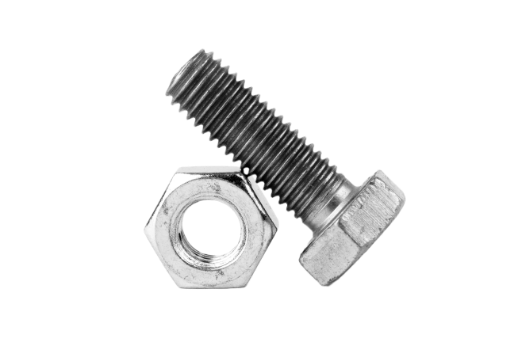
Sleeve anchors and wedge anchors are both mechanical expansion anchors designed to provide strong connections in concrete, but their applications, holding power, installation procedures, material choices, and cost considerations vary significantly.

In this blog post, we'll discuss the key differences between sleeve anchors and wedge anchors by exploring their specific applications in construction projects. We'll also compare their holding power strengths and discuss how they're installed differently.
Sleeve Anchor vs. Wedge Anchor: Key Differences
When it comes to anchors, two popular options are sleeve anchors and wedge anchors. While both can be used to secure objects to multiple surfaces, sleeve anchors are generally used for lighter applications such as attaching items to drywall. Wedge anchors, on the other hand, find their primary application in making structural connections in concrete and steel:
- How they work: Sleeve anchors work by expanding against the base material, while wedge anchors provide their holding power by compressing the base material.
- Strength: Wedge anchors are generally stronger than sleeve anchors and are better suited for heavy-duty applications.
- Installation: Sleeve anchors are easier to install than wedge anchors and require less drilling depth.
- Base material: Sleeve anchors work well in a variety of base materials, including drywall, brick, and block. Wedge anchors, on the other hand, are best used in solid concrete.
When choosing between sleeve anchors and wedge anchors, it's important to consider the specific needs of your project. If you require a high-strength anchor for heavy loads in solid concrete, a wedge anchor may be the better choice. However, if you need a versatile and easy-to-install anchor for a variety of base materials, a sleeve anchor may be the answer..
Sleeve Anchors: Versatility and Uses

Sleeve anchors are ideal for light to medium-duty applications, such as hanging shelves or fixing decking joists. Their expansion sleeve mechanism provides versatility when working with softer base materials like brick, drywall, or hollow block. Although not as strong as wedge anchors overall, they offer reliable support capabilities across diverse application scenarios.
- Shelving units: Sleeve anchors provide the necessary strength to support the weight of shelves and the items they hold.
- Flat-screen TVs: Many modern televisions come with wall-mounting hardware, which can include sleeve anchors for added stability.
- Heavy picture frames or mirrors: Sleeve anchors can provide the necessary support for hanging heavy items like large picture frames or mirrors.
- Wall cabinets: In kitchen or bathroom renovations, sleeve anchors can be used to securely fasten cabinets to the wall.
- Grab bars in bathrooms: For safety purposes, grab bars often need to be installed directly into studs. However, if studs are not available, sleeve anchors can be used as an alternative.
- Heavy-duty wall hooks: These can be used to hang items like bicycles, tools, or gardening equipment. Sleeve anchors provide the necessary strength for these heavy items.
Wedge Anchors: Strength and Durability

Wedge anchors provide a strong and durable solution for heavy-duty applications. They are commonly used in construction projects, such as securing structural steel or anchoring heavy machinery. The mechanical expansion anchor design of wedge anchors provides a secure hold in solid concrete and other hard base materials.
Securing structural steel: Wedge anchors are commonly used to secure structural steel to concrete. The anchor's wedge skirt expands as the bolt is tightened and creates a secure hold that can withstand heavy loads.
Anchoring heavy machinery: When anchoring heavy machinery to a concrete floor, wedge anchors provide a reliable solution. The threaded bolt design allows for easy installation and removal that makes them a popular choice for temporary installations.
When compared to sleeve anchors, wedge anchors provide a higher load capacity and are recommended for heavy-duty applications. However, they are not recommended for use in softer base materials.
Installation Procedures of Wedge and Sleeve Anchors
Both types of anchors require pre-drilled holes before installation; however, the process differs slightly between the two options. For example, installing a wedge anchor requires removing all dust and debris from the hole first while driving it into place using hammer blows against its extra metal top portion designed not to damage screw threads.
Pre-drilling Requirements for Each Type of Anchor
- Wedge anchors: Drill a hole with a diameter equal to that of the threaded anchor body and a depth at least as deep as the wedge skirt length plus embedment depth.
- Sleeve anchors: Use a drill bit size recommended by the manufacturer guidelines based on sleeve diameter and base material density.
Properly Cleaning Out Holes Before Installation
To ensure optimal performance, clean drilled holes thoroughly using compressed air or vacuum cleaners to remove any loose particles or debris that may interfere with mechanical expansion anchor mechanisms during installation. This step is crucial in achieving excellent wall anchor strength when working with concrete anchors like wedge anchoring systems or sleeve anchors.
Factors Influencing Anchor Choice
Determining Appropriate Anchor Based on Material Type
- Solid materials: Concrete wedge anchors provide excellent wall anchor support in solid concrete or grout-filled block applications.
- Soft materials: Sleeve anchors work well in softer base materials like brick, drywall, or hollow block due to their mechanical expansion anchor design.
Get All of Your Anchoring Hardware from Fastener Systems Inc.
Fastener Systems Inc. is your go-to choice for all of your anchoring hardware needs. We have a wide selection of quality wedge anchors, sleeve anchors, and other fasteners to provide the secure hold you need for any job. Our experienced staff can help you select the right anchor for your project and provide guidance on any installation questions or concerns.
Contact us today and let Fastener Systems Inc. be your one-stop shop for all of your anchoring hardware needs!

